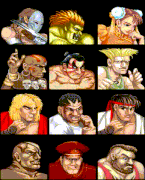|
Magic Hate Ball posted:I liked Fallout 3 a lot more but I don't really know why (better vaults and music? lmao). I appreciate Bethesda for trying. it was obsidion, but i am mixed. I like 4's gameplay but i liked new Vegas story better. the problem with new vegas is their are only 2 good faction choices, you(after cleansing criminal filth from the wastes) and NCR(after cleasning filth from the wastes and blowing the poo poo out of the legion) 4 i am still having trouble deciding weirdly enough.
|
|
|
|

|
| # ? May 22, 2024 15:09 |
|
Magic Hate Ball posted:I liked Fallout 3 a lot more but I don't really know why (better vaults and music? lmao). The Capital Wasteland is better as an environment for exploring in random directions than the Mojave Wasteland is. More places where it feels like the player character is the first human to step foot in there since the bombs fell. It's an atmosphere the more lived-in Mojave doesn't have. New Vegas has a lot of its locations tie into the central conflict which is great for its narrative but not so much for discovery. And a lot of places not related to the battle for Hoover Dam are still inhabited like Black Mountain. It's abstract, but this sense of exploration and discovery is definitely something FO3 has going for it.
|
|
|
|
Orange Fluffy Sheep posted:The Capital Wasteland is better as an environment for exploring in random directions than the Mojave Wasteland is. More places where it feels like the player character is the first human to step foot in there since the bombs fell. It's an atmosphere the more lived-in Mojave doesn't have. New Vegas has a lot of its locations tie into the central conflict which is great for its narrative but not so much for discovery. And a lot of places not related to the battle for Hoover Dam are still inhabited like Black Mountain. It's abstract, but this sense of exploration and discovery is definitely something FO3 has going for it. this. its better story driven experience. but 3 and 4 are better at "pick direction and explore"
|
|
|
|
lmaoDapper_Swindler posted:this. its better story driven experience. but 3 and 4 are better at "pick direction and explore" That's why I liked 3's vaults as well, it felt like I was wandering and finding, and a story was being assembled from all these disparate pieces. I haven't played 4 yet but if it's similar then I might have to!
|
|
|
|
Magic Hate Ball posted:lmao yeah. i remember when some phone kardasian game didn't do an update, they got poo poo ton of death threats. it sucks.  pretty much this. pretty much this.
|
|
|
|
Magic Hate Ball posted:lmao In NV vault 11 is my favorite vault for that sort of thing in the whole series. Entering the place and trying to assemble all of the pieces of just what the hell happened and the shock of what awaits you at the end is just brilliant. I think that the strange stories and in-depth quests are what really set New Vegas apart, its great storytelling in a way totally unique to the medium, vignettes and stories scattered around that combine to form a very well built world where you can steer events along many different courses and can interact with at your own pace. khwarezm fucked around with this message at 00:39 on May 30, 2016 |
|
|
|
Raxivace posted:I don't agree, unless you're going to include picking dialogue options in VN's (And even then, there are VN's that don't even have that!) or something like Firewatch as a game mechanic. VNs, especially kinetic novels, aren't games, they're glorified choose-your-own-adventure novels.
|
|
|
|
Volcott posted:Mooks (like elves) aren't people, so it isn't murder. #digitalblacklivesmatter Orange Fluffy Sheep posted:The Capital Wasteland is better as an environment for exploring in random directions than the Mojave Wasteland is. More places where it feels like the player character is the first human to step foot in there since the bombs fell. It's an atmosphere the more lived-in Mojave doesn't have. New Vegas has a lot of its locations tie into the central conflict which is great for its narrative but not so much for discovery. And a lot of places not related to the battle for Hoover Dam are still inhabited like Black Mountain. It's abstract, but this sense of exploration and discovery is definitely something FO3 has going for it. See, I found everything outside of the story missions in 3 to be very drab and boring. New Vegas had some interesting side quests throughout the game; you just had to explore a very sparse landscape to find them. GenderSelectScreen fucked around with this message at 01:45 on May 30, 2016 |
|
|
|
It's funny, but I pretty much never give a poo poo about who made a game. I can certainly name drop a few just from repetition after years of surfing the web, but I have never cared enough about a director to try any games based solely on their name. I'm not totally sure how many people share my views on that, but I do think there is a lack of traction for directors/writers/actors and the like to carry the popularity of a game, and that this lack of traction may play a part in games not being seen as art.
|
|
|
|
Freakazoid_ posted:It's funny, but I pretty much never give a poo poo about who made a game. I can certainly name drop a few just from repetition after years of surfing the web, but I have never cared enough about a director to try any games based solely on their name. The traction is more by company in video games. Hironobu Sakaguchi has been a major part of every numbered Final Fantasy game until his resignation but the franchise was and is more closely tied to Squaresoft/Square-Enix than any members of its staff. Hell, in the credits, the only common person betwen FF1 and FF13 is Yoshitaka Amano, who is credited only for the logo for 13. Mario and Zelda are Nintendo, Castlevania is Konami, Elder Scrolls is Bethesda. Only a few exceptions exist like Hideo Kojima and the Metal Gear series, and part of that may be his eccentricity. And even then there's still a strong link to Konami. Creator names aren't advertised for games like they are books or movies. Catch-22 says Joseph Heller on it. No Country for Old Men posters tell you its actors and the Coen brothers. Fallout 3 says Bethesda. It's pretty easy to miss Todd Howard's connection to the game. This may be creating a self-fulfilling prophecy.
|
|
|
|
Orange Fluffy Sheep posted:The traction is more by company in video games. Hironobu Sakaguchi has been a major part of every numbered Final Fantasy game until his resignation but the franchise was and is more closely tied to Squaresoft/Square-Enix than any members of its staff. Hell, in the credits, the only common person betwen FF1 and FF13 is Yoshitaka Amano, who is credited only for the logo for 13. Mario and Zelda are Nintendo, Castlevania is Konami, Elder Scrolls is Bethesda. Only a few exceptions exist like Hideo Kojima and the Metal Gear series, and part of that may be his eccentricity. And even then there's still a strong link to Konami. There are a handful of exceptions, of course; Kojima is the most prominent, but a lot of smaller-scale or indie games are strongly identified with their creators (Jonathan Blow, Suda 51, Edmund McMillen, Tim Schafer), and certainly there's been a whole raft of Kickstarters of the form "here's a new game from the people who brought you [old game you liked]".
|
|
|
|
I think it might be responsible for the type of thing we're seeing with no man's sky. To many, a video game isn't the result of a creative endeavour, but a thing that exists by itself. When a developer comes along and says "sorry, game won't be out next month," the developer is now coming between the consumer and the video game. The developer only exists to realize the game (which exists as a notion separate from being made). The developer serves the game, rather than being the creator of it. Though, I guess the games-as-product issue might be a different one that what I'm describing. That's more of a popular perception thing, whereas I'm talking about people who are very invested in video games. These people probably do know who Todd Howard is, and who to send their death threats to when Fallout 5 has fewer square miles than Fallout 4. Raxivace posted:I don't agree, unless you're going to include picking dialogue options in VN's (And even then, there are VN's that don't even have that!) or something like Firewatch as a game mechanic. In what way are those not mechanics? How would you define a game mechanic? To me it is self evident that a game has mechanics, because all interaction with a game is through its mechanics, and a game without mechanics would have no interaction. It wouldn't be a game, it would be a movie or book or something. Dr. Stab fucked around with this message at 05:24 on May 30, 2016 |
|
|
|
Dr. Stab posted:I think it might be responsible for the type of thing we're seeing with no man's sky. To the many, a video game isn't the result of a creative endeavour, but a thing that exists by itself. When a developer comes along and says "sorry, game won't be out next month," the developer is now coming between the consumer and the video game. The developer only exists to realize the game (which exists as a notion separate from being made). The developer serves the game, rather than being the creator of it.
|
|
|
|
Incoherence posted:It's sort of the same way that American animated films are strongly identified as "Disney films" or "DreamWorks films" or "Pixar films": the group contribution of the whole company is stronger than the contribution of the director. I'm not sure the "people who brought you [old game]" trend actually is an exception. There's a reason it advertises as people instead of a specific person. It might not be the same company but it's often a large portion of the original team, structured in a similar way to the original team, operating on the same design philosophy as the original team, etc.
|
|
|
|
Dr. Stab posted:I think it might be responsible for the type of thing we're seeing with no man's sky. To many, a video game isn't the result of a creative endeavour, but a thing that exists by itself. When a developer comes along and says "sorry, game won't be out next month," the developer is now coming between the consumer and the video game. The developer only exists to realize the game (which exists as a notion separate from being made). The developer serves the game, rather than being the creator of it. This reminds me of a phenomenon that appears in a lot of internet popular culture, and especially video games, which has been shorthanded to the term "nerdism". Basically, the thesis in nerdism is that for many activities, the product or work of art or whatever is not actually enjoyable. People don't have fun watching the movie or playing the game or whatever. Instead, they have fun by anticipating the release of the game/movie/whatever. The marketing campaign itself turns into an activity for enjoyment, and when the actual product comes out, all people can think about is "where's the next one"? Let's use the most infamous video game in recent memory as an example - Star Citizen. People don't actually enjoy Star Citizen. Even before they announced all the alternate modes, what it was originally was basically "EVE Online, but with different ships". If people liked that, they would play EVE Online. No, what people enjoy is the hype to releasing Star Citizen. All the different ships they can imagine. All the things they can see or do or pretend to accomplish. You had people spending thousands of dollars on ships that didn't even have a model, never mind a playable state. When the game finally comes out, people will be disappointed. They'll hate the game. They will not have fun with it. Yet at the end of the day, what will they be hoping for next? "The Next Star Citizen" of course! Either a literal sequel/patch that promises to address the issues, or a thematic sequel that scratches that itch of anticipation. And so the cycle begins again.
|
|
|
|
Incoherence posted:This is a really odd interpretation of Death of the Author which seems to be popular both among a subset of gamers and among regulars of TvTropes, and I don't quite understand how they make the leap from "the setting is created by the author" to "the setting exists independently of the author and the author simply channels it". This is, I think, how people manage to argue that a developer voluntarily making a change to their game is "censorship" (the most recent example of this being the tremendously stupid Overwatch "buttgate" controversy). Now that I think about it more, perhaps there's a different explanation. Even if they acknowledge that the game is the product of its author, they can still see the game-author system as being independent of the audience. The auteur creator works unerringly to realize their perfect vision. Then, some external force comes along and says "I don't like this" and the auteur must compromise their vision in order to satisfy these people. I think this view mostly ignores that the state of a game is in constant flux as the author figures out, often with tons of testing, what people enjoy. So, the author doesn't say "I didn't predict people would react like this, I should fix my blind spot in my model of the audience," but instead "I must sell out by deviating from my design in order to sell copies of my game." However, an example that seems to require the game to exist independently of the author is the Baldur's Gate situation. That's something where it wasn't explicitly in reaction to an audience demand, but was still seen as a sort of corruption of the game by the author, where the author injected their own "politics" into the game. Maybe both are to blame. reignonyourparade posted:I'm not sure the "people who brought you [old game]" trend actually is an exception. There's a reason it advertises as people instead of a specific person. It might not be the same company but it's often a large portion of the original team, structured in a similar way to the original team, operating on the same design philosophy as the original team, etc. Yeah. This is just how you sell a pedigree when the audience doesn't actually know who anyone involved is. It doesn't any more acknowledge that people make games than saying "by ubisoft" does.
|
|
|
|
Orange Fluffy Sheep posted:Creator names aren't advertised for games like they are books or movies. Catch-22 says Joseph Heller on it. No Country for Old Men posters tell you its actors and the Coen brothers. Fallout 3 says Bethesda. It's pretty easy to miss Todd Howard's connection to the game. It's a part of the rise of corporatism that has infiltrated all aspects of content creation. You have your indie-darlings, yeah, but then you have Tom Clancy. And you have people with Masters in English pouring out stuff that gets someone else's name on it. Videogames are brands. You talk about the Coen Brothers but there's a lot of other people that were involved with their work. They are used as a brand to get a consumer to think they're going to get a particular experience. I think a big reason why this happened is because of Nolan Bushnell with Atari and anonymity he accidentally or intentionally pushed among game designers. Dr. Stab posted:The developer only exists to realize the game (which exists as a notion separate from being made). The developer serves the game, rather than being the creator of it. This is different from talking about videogames as art objects. It's industry talk. A friend told me about JK Rowling attending some Reader's Response thing and being flabbergasted at what the audience was reading into her work and challenged them; the moderator said that the audience's interpretation was legitimate. It's all really fascinating, but I don't think it actually deals with the art. To the OP, you critique videogames by saying what they do well and what they do poorly. And you can talk about how they made you feel. Did a game make you feel like you made meaningful decisions? Did it get you to care about a character? Did it engage you with incredible opportunities to create moments, to make your own art experience by throwing down and blowing up an elaborate explosion that spelled out 'penis'? Did it sacrifice those art opportunities to tie you to a story that seemed dissonant from the game elements? Did you find yourself entering a state of flow or were you bored? I personally think you start with the role the game forces you to occupy and then you see if the rules helped you perform that role well or poorly. Tuxedo Catfish posted:All games have mechanics, and an aesthetic theory of game mechanics isn't an unreasonable goal. Like this is cool and it's true but it extends beyond a conversation about the art of a videogame. It would definitely inform a conversation, but it goes beyond that.
|
|
|
|
computer parts posted:This reminds me of a phenomenon that appears in a lot of internet popular culture, and especially video games, which has been shorthanded to the term "nerdism". If you look at completion rates for games, I think you're absolutely right. Unless everyone's getting their fill from the first three hours of a game, not a lot of people are actually enjoying the content they're buying. According to steam, 23.5% of people with GTA V finished the story.
|
|
|
N. Senada posted:If you look at completion rates for games, I think you're absolutely right. Unless everyone's getting their fill from the first three hours of a game, not a lot of people are actually enjoying the content they're buying. There are lots of games I have hundreds of hours in that I never fully completed, though. I have 209 hours in Divinity: Original Sin and I never actually finished it, for example. 426 hours in Pillars of Eternity and I did finish the main game but never finished the expansions. 136 hours in X-Com 2 and I didn't finish it either. I still had fun with all three of those games and don't regret the purchase (I'll get around to finishing them at some point). I bought Portal 2 on steam sale years ago and I only started actually playing it this week -- it's a blast but I'm only rarely in the mood for a puzzle game. So i think completion statistics don't necessarily equate to enjoyment statistics. There's a tendency to assume that people don't enjoy games they haven't yet finished but I don't think that's valid.
|
|
|
|
|
Dr. Stab posted:Yeah. This is just how you sell a pedigree when the audience doesn't actually know who anyone involved is. It doesn't any more acknowledge that people make games than saying "by ubisoft" does. I don't see it as ignoring that people make games, personally. Games are a giant undertaking and looking at the group rather than particular individuals in that group is probably going to give you a better understanding of what go expect out of a game. Even Kojima, I think, would produce a very Obsidian-y game if for whatever reason you put him in charge of the Obsidian team to make a game (which is why you will never see Kojima in charge of an Obsidian team, he doesn't WANT to make an Obsidian-y game.)
|
|
|
|
Wales Grey posted:VNs, especially kinetic novels, aren't games, they're glorified choose-your-own-adventure novels. Oh boy, now are we going to retread the IF community's "choice games aren't games" arguments from the 90s?
|
|
|
|
Dr. Stab posted:In what way are those not mechanics? How would you define a game mechanic? To me it is self evident that a game has mechanics, because all interaction with a game is through its mechanics, and a game without mechanics would have no interaction. It wouldn't be a game, it would be a movie or book or something. I would question you saying that movies are not interactive though, at least when it comes to home video releases. You can still pause them, rewind them, go to the main menu and select a scene from the scene selection submenu etc.
|
|
|
|
Hieronymous Alloy posted:There are lots of games I have hundreds of hours in that I never fully completed, though. I have 209 hours in Divinity: Original Sin and I never actually finished it, for example. 426 hours in Pillars of Eternity and I did finish the main game but never finished the expansions. 136 hours in X-Com 2 and I didn't finish it either. I still had fun with all three of those games and don't regret the purchase (I'll get around to finishing them at some point). I bought Portal 2 on steam sale years ago and I only started actually playing it this week -- it's a blast but I'm only rarely in the mood for a puzzle game. It's pretty common to see those <do trivial thing> achievements at like 75% though. So a quarter of people who bought the game never even played it.
|
|
|
|
computer parts posted:It's pretty common to see those <do trivial thing> achievements at like 75% though. So a quarter of people who bought the game never even played it.
|
|
|
|
Dapper_Swindler posted:it was obsidion, but i am mixed. I like 4's gameplay but i liked new Vegas story better. the problem with new vegas is their are only 2 good faction choices, you(after cleansing criminal filth from the wastes) and NCR(after cleasning filth from the wastes and blowing the poo poo out of the legion) 4 i am still having trouble deciding weirdly enough. New Vegas' story is passable, though still bad by the standards of actual writing or even good TV, 3 and 4 feel like they were written by a panel of TVtropes editors
|
|
|
|
Tuxedo Catfish posted:All games have mechanics, and an aesthetic theory of game mechanics isn't an unreasonable goal. I would argue game mechanics do not actually count as an aspect of aesthetics
|
|
|
|
Incoherence posted:This is a really odd interpretation of Death of the Author which seems to be popular both among a subset of gamers and among regulars of TvTropes, and I don't quite understand how they make the leap from "the setting is created by the author" to "the setting exists independently of the author and the author simply channels it". This is, I think, how people manage to argue that a developer voluntarily making a change to their game is "censorship" (the most recent example of this being the tremendously stupid Overwatch "buttgate" controversy). When a creator is pressured to change their art because it doesn't conform to some group's ideology, ala Salman Rushdie for example, it may not be "censorship" but it sure ain't some critical theory hairsplitting either. Fuschia tude posted:Oh boy, now are we going to retread the IF community's "choice games aren't games" arguments from the 90s? Why not? It seems the matter is hardly settled; whether it's useful or not to categorize a work of art by a simple binary "is game / is not game" is a different question though. That said I suspect when most people complain that some indie critical darling "isn't a game", they're just saying that as a convenient shorthand for "this is a game that has no challenge, no puzzles, no problem solving, no mechanics, no replayability" and so on, qualities historically considered desirable in a game versus say a blog post.
|
|
|
|
Orange Fluffy Sheep posted:The Capital Wasteland is better as an environment for exploring in random directions than the Mojave Wasteland is. More places where it feels like the player character is the first human to step foot in there since the bombs fell. It's an atmosphere the more lived-in Mojave doesn't have. New Vegas has a lot of its locations tie into the central conflict which is great for its narrative but not so much for discovery. And a lot of places not related to the battle for Hoover Dam are still inhabited like Black Mountain. It's abstract, but this sense of exploration and discovery is definitely something FO3 has going for it. New Vegas had a benefit from being in the same area where FO and FO2 happened where that poo poo already happened and humanity has basically rebounded enough that there are nationstates. Its basically a post post apocalypse Weird Western game. I prefer the Mojave setting over the DC because I've been to both and I just prefer the Mojave because I love the desert (and Zion National Park). Well that and gambling
|
|
|
|
Raxivace posted:I always thought of game mechanics as as analogous to the rules of a sport. How high you can jump, how fast you can swing a sword or whatever, how enemy AI reacts in given situations etc., whereas there's not much mechanical difference between picking one dialogue option over another. If we're counting literally all interactions we can have within a game as a game mechanic though, then I would agree dialogue options are a game mechanic (Particularly in games where the dialogue options form a kind of puzzle for the player to solve, though I had been thinking more of games where the options don't really make much of a difference in how the game proceeds.) and that I was wrong to imply that they might not be. That interaction is part of the framework in which the film is presented and not the film itself. Also, I agree that mechanics are like rules, but I disagree about them requiring a "mechanical difference." I think that you're assuming that a game must be something that you succeed or fail in, and mechanics must serve as that end. Instead, I believe that mechanics can serve whatever end they want. So, if you're making dialogue choices where the purpose is to invest the player in the conversation, whether or not the decision was made via a mechanic isn't defined by whether the game calls back your decision later on. Like, why isn't "push button to advance text" part of the rules of a VN?
|
|
|
|
icantfindaname posted:I would argue game mechanics do not actually count as an aspect of aesthetics It's the only sensible way to evaluate them. Game design isn't a science or a craft; there's no objective measure of a good mechanic, and no practical purpose they can be evaluated against. People talk about mechanics being "elegant", or "harsh" or "muddled." They're a matter of taste and your tastes evolve the more you play, as you learn what you like. They're absolutely an aspect of aesthetics.
|
|
|
|
Orange Fluffy Sheep posted:The traction is more by company in video games. Hironobu Sakaguchi has been a major part of every numbered Final Fantasy game until his resignation but the franchise was and is more closely tied to Squaresoft/Square-Enix than any members of its staff. Hell, in the credits, the only common person betwen FF1 and FF13 is Yoshitaka Amano, who is credited only for the logo for 13. Mario and Zelda are Nintendo, Castlevania is Konami, Elder Scrolls is Bethesda. Only a few exceptions exist like Hideo Kojima and the Metal Gear series, and part of that may be his eccentricity. And even then there's still a strong link to Konami. Hollywood is largely a different story because actors, directors, and many other personnel are free agents and longer-running IPs are usually set up with similarly-long-term contracts with key personnel, and also because it isn't really possible to hide the fact that a lead actor was replaced, and I think some of it (like the director's credit being first?) is driven by union rules. The difference is overstated though. Yeah, you hear the name of the director, producer, and lead actors, but those are what, 5 people total? Out of how many that appear in the credits reel of the typical movie these days? Think of how much money goes into special effects in your typical summer blockbuster, and yet hardly anybody can name the VFX companies that did them.
|
|
|
|
icantfindaname posted:I would argue game mechanics do not actually count as an aspect of aesthetics Game mechanics absolutely play a huge role in developing the emotional tone of playing the game, which I think makes them an aspect of aesthetics. Far Cry 2, to use a big example, is (intentionally) one giant stress fugue that genuinely frays the nerves to play for any length of time because it effectively mechanically implements privation, uncertainty, and a razor-thin margin between success and failure at any given task, even late in the game. The story and visual aesthetic absolutely complement and reinforce the mechanics, but would not be nearly able to carry that same tone with a more forgiving and accommodating game design. (Mad Max, for instance, confines its struggle-for-survival themes entirely to dialogue and art--the player can clearly see that the world is 'actually' much easier to survive in than characters claim, robbing the story of some of its punch) e: just think about how the addition or removal of a timer (and how tight the time pressure is) would affect the tonal experience of playing literally any game, from puzzle to brawler. HookedOnChthonics fucked around with this message at 17:57 on May 30, 2016 |
|
|
|
Dapper_Swindler posted:whats wrong with them? they arnt the deepest but i find them interesting. better then anything polygon or killscreen has done in my opinion. No no, I was talking about the actual names themselves. Like there's one Internet nickname and then an actual name
|
|
|
|
HookedOnChthonics posted:Game mechanics absolutely play a huge role in developing the emotional tone of playing the game, which I think makes them an aspect of aesthetics. mad max is like that at the very beginning when you dont have dick for resources and the map is mostly unexplored. but once you get the rockets/thunderpoon and armor up the car. its easy. unwantedplatypus posted:No no, I was talking about the actual names themselves. Like there's one Internet nickname and then an actual name
|
|
|
|
From the end of the tutorial section on you have a car that cannot be destroyed, only delayed, unlimited driving bullet time, and an infinite ammo instakill gently caress-you gun. Also, dying typically adds to your resource pool--if you die in a camp, at least, you respawn outside with everything you had going in plus full health. Though Mad Max is also fairly unique among big, open-world upgrade-centric games in that it allows you to unequip upgrades to artificially generate challenge, which is neat. Going against convoys in a normal car with the mid-tier shotgun and ammo belt is the best fun it has to offer IMO So I guess that does prompt a further question--given that every player independently navigates a unique path through a game, to what extent does/should games criticism account for that? Should we analyze the platonic-ideal playthrough that experiences the game "the way the developers intended?" Or are things like extrinsic player challenges (eg nuzlocke) and fun inimical to the 'point' of the game (rear end in a top hat physics and wonky ragdolls in shooters) equally critically relevant? If you play on Easy rather than Normal is your experience less valuable for analysis? It's pretty indisputable that games tend to offer more authorial responsibility to the audience than any other genre can accommodate and I think that's a far more interesting vein to analyze than art/not-art. I don't have anything near a defensible stance, but I will say w/r/t earlier thread discussion that I think the simple choice to continue or not does have more significance in games than in books/movies etc. (or at least can). Games can include a meaningful idle state: in both Gone Home and watching a horror movie, desire to learn more about the story and progress towards its conclusion is balanced by apprehension of what lurks in the darkness, but hesitating on a threshold, wavering in indecision and uncertainty as the house creaks around you in Gone Home is part of the experience while pausing a scary movie is removal and stasis. Now, the outcomes of continuing on with the narrative or putting it down are the same across media, but I think the headspace of the decision is different. (ditto would go for Spec Ops and a tragic movie)
|
|
|
|
HookedOnChthonics posted:
Gone Home is good because of they way it tells its story and its mechanics, not the story itself(while it was ok, i kinda of expected something more tragic) the problem is alot of people took the wrong lesson from gone home when making walking/ adventure simulators. Gone home was all about interactivity and examination, thats how you learned the story, the main dev worked on bother bioshock one(he designed fort frolic i believe) and was the main creative director behind 2. and you can see that in gone home. every piece of the environment tells a story and all the characters are flawed, their stories told in thing belongings and writings. the problem is very few people in my opinion took that idea from it(apart from firewatch, which i personally didn't care for, and a few of the "walking BOO haunted house" games. they instead made walking sims a medium where the author makes walk around and listen to whatever issues the writer of the game believes in with very little interactions except walk slowly. Sunset and any The Chinese Room(plus they have a nasty habit of trying to poo poo on their betters http://segmentnext.com/2016/04/29/cyberpunk-2077-criticized-sexist-chinese-room/ http://segmentnext.com/2016/05/03/cd-projekt-red-employee-responds-chinese-rooms-comment/) is that to a T. it feels lazy and kinda pretentious. Politics in games is great, buts its poo poo when its done hamfistdly, like with sunset. Dapper_Swindler fucked around with this message at 20:51 on May 30, 2016 |
|
|
|

|
|
|
|
Critics are known for being hyperbolic to a fault, and when coupled with a permeating desire to have their chosen class of thing be considered more high brow, we get this.
|
|
|
|
What's funny wasn't The Last of Us considered "The Citizen Kane of games" that very year by a bunch of critics? I mean it was good and fun, but that was a little lofty, though I always have a soft spot for Naughty Dog games.
|
|
|
|

|
| # ? May 22, 2024 15:09 |
|
achillesforever6 posted:What's funny wasn't The Last of Us considered "The Citizen Kane of games" that very year by a bunch of critics? The Last of Us is an artistic success in the sense that it had beautifully rendered environments, great voice actors and voice acting, generally good atmosphere, a competently written story, etc. Yet its gameplay wasn't anything really different from any other shooty-game with stealth elements. I think calling it a 'Citizen Kane' or heaping high praise on it is a little silly and critically narrow. The film that wins Best Cinematography at the Oscars isn't always the film that wins Best Picture (leaving aside Oscars politics). The Last of Us is the Avatar of gaming. Except with more likable characters.
|
|
|



























